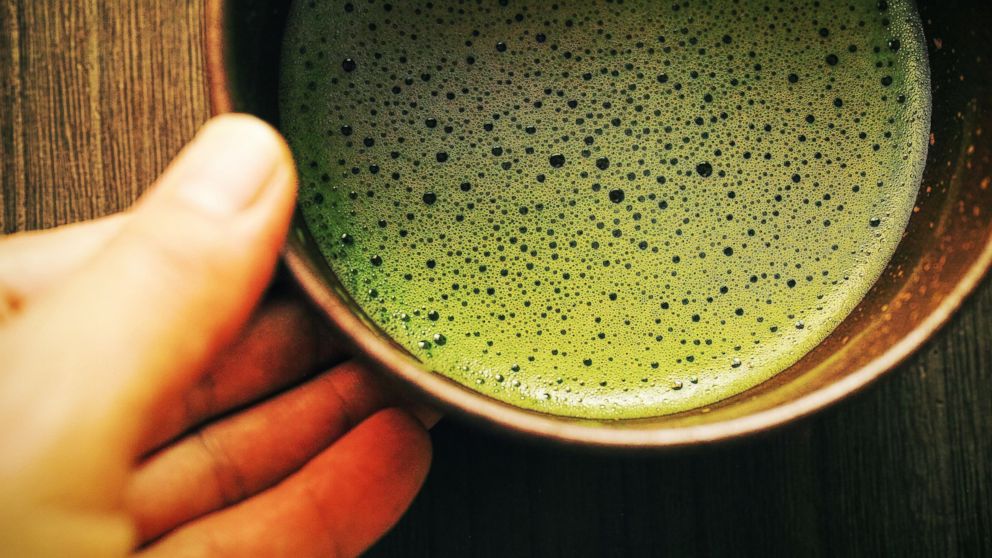7 Things You Should Know About Matcha
What to keep in mind ditching java for matcha

— -- intro: I’ve been getting asked about matcha a whole lot lately. I heard that matcha shots were the “it beverage” at New York Fashion Week, and many dedicated coffee lovers are ditching java in favor of matcha. If you’re curious about this trendy beverage, here are seven things you should know.
quicklist: 1category: 7 Things You Should Know About Matchatitle: It’s a special form of green teaurl:text:
Matcha literally means “powdered tea.” When you order traditional green tea, components from the leaves get infused into the hot water, then the leaves are discarded. With matcha, you’re drinking the actual leaves, which have been finely powdered and made into a solution, traditionally by mixing about a teaspoon of matcha powder with a third cup of hot water (heated to less than a boil), which is then whisked with a bamboo brush until it froths.
Unlike traditional green tea, matcha preparation involves covering the tea plants with shade cloths before they’re harvested. This triggers the growth of leaves with better flavor and texture, which are hand selected, steamed briefly to stop fermentation, then dried and aged in cold storage, which deepens the flavor. The dried leaves are then stone-ground into a fine powder.
RELATED: Fat-Burning Recipe: Spiced Green Tea Smoothie
quicklist: 2category: 7 Things You Should Know About Matchatitle: It offers health benefitsurl:text:Because matcha is made from high-quality tea, and the whole leaves are ingested, it’s a more potent source of nutrients than steeped green tea. In addition to providing small amounts of vitamins and minerals, matcha is rich in antioxidants called polyphenols, which have been tied to protection against heart disease and cancer, as well as better blood sugar regulation, blood pressure reduction, and anti-aging. Another polyphenol in matcha called EGCG has been shown in research to boost metabolism, and slow or halt the growth of cancer cells.
quicklist: 3category: 7 Things You Should Know About Matchatitle: It contains caffeineurl:text:
Because you’re consuming whole leaves in matcha, you may get three times as much caffeine than a cup of steeped tea, about the amount in a cup of brewed coffee. Matcha aficionados say that compared to the caffeine buzz from coffee, matcha creates an “alert calm” due to a natural substance it contains called l-theanine, which induces relaxation without drowsiness. Still, I do believe it’s best to nix all forms of caffeine (including matcha) at least six hours before bedtime, to ensure a good night’s sleep.
RELATED: 12 Surprising Sources of Caffeine
quicklist: 4category: 7 Things You Should Know About Matchatitle: It traditionally involves meditationurl:text:The preparation of matcha is the focus of Japanese tea ceremonies, and it has long been association with Zen. This is likely one reason it’s becoming so popular, as meditation is becoming more and more mainstream. Because I’m blown away by the research on the health and weight loss benefits of mindfulness meditation, I included an entire chapter about this practice in my new book Slim Down Now, and recorded a five-minute guided meditation video on my website (click on the word mindful, top right to view).




